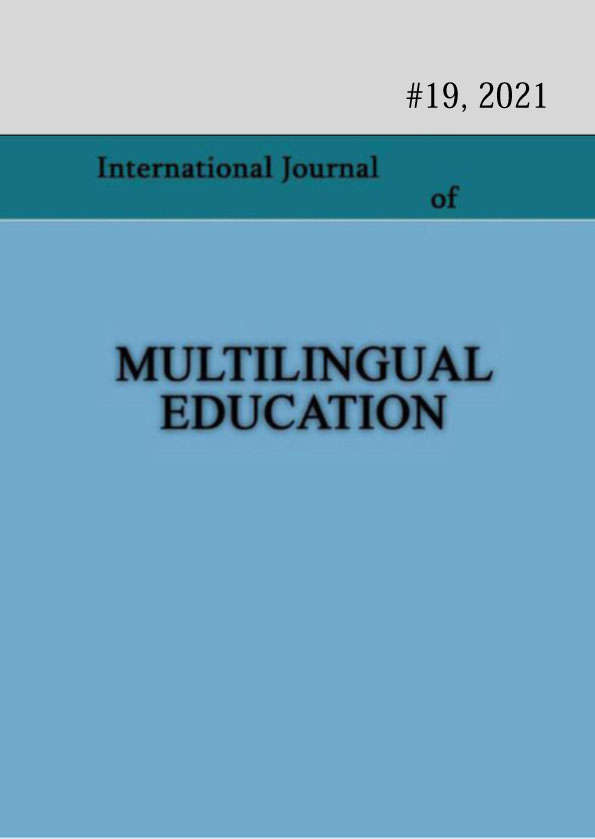The Use of Popular Songs and Films in Overcoming the Typical Mistakes of Georgian Learners of English
Keywords:
language interference, typical error, lyrics, film fragment, foreign language teaching.Abstract
The paper focuses on the typical mistakes of Georgian learners of English. The students’ errors are usually caused by native language interference. The theoretical framework embraces the works of Lado, 1957; Corder, 1981; Spicher & Sweeney, 2007; Salcedo, 2002; Ludke, 2009 etc. The empirical material is obtained from personal experience of teaching as well as popular media patfroms. As English and Georgian are structurally extremely different, the errors of Georgian students are most frequently related to grammar. Based on the longstanding experience of teaching English as a foreign language, the author argues that students easily overcome the problem of native language interference and related frequent errors if they are given examples from the texts of popular songs and films.
Taking into account that songs and films represent authentic, natural language, they serve as an ideal medium for improving pronunciation, learning morphological and syntactic patterns, enriching the vocabulary, improving the students’ listening skills and so on. Besides, the lyrics of songs are usually very easily obtainable from Youtube or other media platforms. It is widely discussed that songs facilitate foreign language acquisition. Listening to songs and watching interesting fragments of films is not as time-consuming as reading grammar textbooks, learning the rules and doing exercises. The process is very efficient and enjoyable both for the teacher and the students. Thanks to the refrains of songs, which are repeated several times, certain words and syntactical patterns are firmly fixed in the learner’s mind. This is especially important when the teacher tries to help students overcome the typical errors caused by the so-called “negative transfer” i.e. native language interference. The paper analyzes cases when the texts of songs and films have helped overcome issues like: complex object vs direct object, the use of relative pronouns and conjunctions, various types of subordinate clauses, the rules of using so/such, conditional sentences of different types and so on. The paper gives recommendations as to which particular song or film is the most efficient in overcoming each of the above-mentioned problems. The author also notes that, in some cases, the lyrics of songs have the opposite effect on the learner, i.e. the grammar and spelling rules are completely ignored in some songs. The paper argues that in such cases teachers should be extremely careful and offer special explanation to students in order to prevent them from making such errors.
References
Corder S.P. (1981). Error Analysis and Interlanguage. Oxford University Press. London. Fries C. (1983). Linguistics and Reading. Irvington Publishers. New York.
Gass, S. (1979). Language Transfer and Universal Grammatical Relations in Language Learning, Volume 29, No. 2. pp. 327-344.
Lado R. (1957). Linguistics across Cultures. University of Michigan Press. Louisiana State University.
Ludke, K. (2009). Teaching Foreign Languages through Songs. University of Edinburgh. Lynch L.M. (2012). 9 Reasons Why You Should Use Songs to Teach EFL. Retrieved from
https://www.eslbase.com/teaching/using-songs-to-teach-efl, visited on June 21, 2012.
Medina, S. (1990).The Effects of Music upon Second Language Vocabulary Acquisition. Proceedings of the Annual Meeting of the Teachers of English to Speakers of Other Languages (San Francisco, CA).
Prator, C. H., & Celce-Murcia, M. (1979). An Outline of Language Teaching Approaches. Teaching English as a Second or Foreign Language. Celce-Murcia and McIntosh. Rowley, MA: Newbury House.
Smith Salcedo, C. (2002). The Effects of Songs in the Foreign Language Classroom on Text Recall and Involuntary Mental Rehearsal. Doctoral dissertation,
Spicher & Sweeney, (2007). Folk Music in the L2 Classroom: Development of Native- Like Pronunciation through Prosodic Engagement Strategies. A Journal for Foreign Language Educators. pp. 35-48.
Published
How to Cite
Issue
Section
License
Copyright (c) 2021 Irine Demetradze

This work is licensed under a Creative Commons Attribution-NonCommercial 4.0 International License.
Copyright (c) - Authors who publish with this journal agree to the following terms: Authors retain copyright and grant the journal the right of first publication with the work simultaneously licensed under a Creative Commons Attribution-Noncommercial 4.0 International License, which allows others to share the work with an acknowledgement of the work's authorship and initial publication in this journal. Authors are permitted and encouraged to post their work online (e.g., in institutional repositories or on their personal website) prior to and during the submission process, as it can lead to productive exchanges, as well as earlier and greater citation of published work (see The Effect of Open Access). Authors may enter into separate, additional contractual arrangements for the non-exclusive distribution of the journal's published version of the work (e.g., post it to a repository or publish it in a book), with an acknowledgement of its initial publication in this journal.

